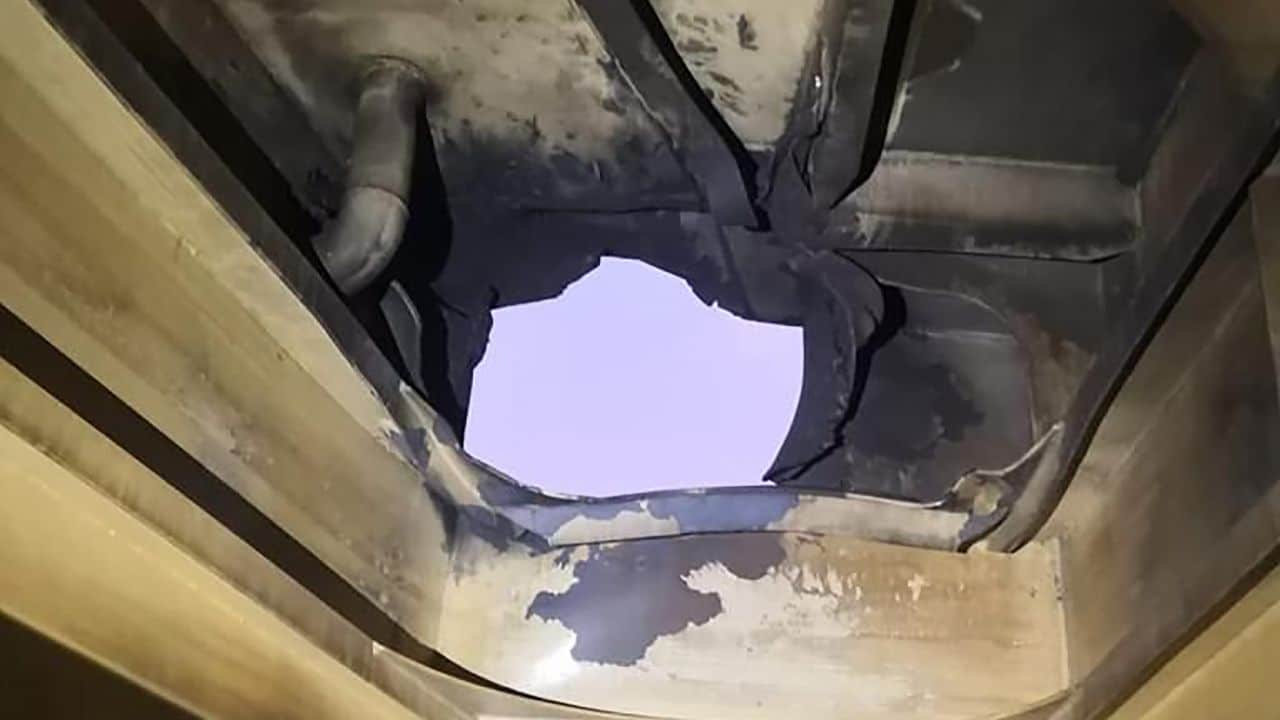Executive Summary
A UAV strike targeted an Israeli-linked oil tanker off the coast of Oman, once again demonstrating Iran’s capability to conduct high-precision strikes against moving maritime targets. No casualties were reported but the incident is similar to a UAV strike in the same area in July 2021 and is set to raise concerns about a resumption of Iran-linked attacks against Israeli-linked maritime assets as seen during 2021.
On 15 November, according to a statement by the US Central Command, an Israeli-linked oil tanker was targeted in a UAV attack involving a one-way Sheed series variant off the coast of Oman at approximately 22:00 local time. The strike targeted the Liberia-flagged Pacific Zircon which is owned by Eastern Pacific Shipping – a Singapore-based company owned by an Israeli businessman Idan Ofer. No casualties were reported however the tanker sustained material damage as a result. Footage obtained and disseminated by CNN showed a large hole in the hull of the vessel as well as remains of the device, yet the report added that the authenticity of the images has not been verified.
The CENTCOM statement attributed the attack to Iran and said the incident demonstrates Tehran’s “malign activities” in the region. The statement added that one Royal Navy and two US Navy vessels responded to the incident. The Iranian government denied involvement while Iranian state-linked media notably played down the incident.
UAV strike raises concerns over renewed maritime attacks
A statement by Eastern Pacific Shipping added that the strike took place approximately 240 kilometers off the coast of Oman which again demonstrates Iran’s capability to launch high-precision, long-distance strikes against maritime targets in nearby waters. The involvement of a Shahed-type UAV was also corroborated by unnamed Israeli officials who said an initial investigation pointed to the involvement of a Shahed-136 variant which is similar to the types exported by Iran to Russia and employed against Ukraine.
The incident is similar to the targeting of another Israeli-linked cargo ship – the Mercer Street – off the coast of Oman in July 2021, which likewise resulted in material damage and initially raised suspicions of Houthi involvement. The event followed a string of attacks against Israeli-linked vessels reported throughout 2021 and included the targeting of the Israeli-owned Helios Ray in February 2021 as well as several incidents in the Persian Gulf.
These operations involved a combination of limpet mines planted on of the hulls of the vessels and long-range UAV strikes attributed to Iran as assessed retaliation for Israeli-linked operations against Iranian assets in Syria and sabotage operations against Iranian nuclear facilities. In response, Israel was suspected of involvement in sabotage operations against Iranian cargo vessels in the Mediterranean sea to disrupt fuel supplies to and from Syria.
Attack coincides with enduring Israeli tensions, US vessel seizure and stalled JCPOA talks
Associated activity has since decreased and the operation on 15 November is the first to affect Israeli maritime interests this year. Assessed motives remain speculative, but broadly involve enduring tensions between Iran and Israel, with the timing plausibly related to the likely election of anti-Iranian hardliner Benjamin Netanyahu as the new Israeli Prime Minister and continued Israeli operations in Syria, where missile strikes targeted Iranian assets in the Homs province on 13 November. Other considerations include the US Navy seizure of a Yemen-bound, Iranian vessel on 8 November which reportedly carried more than 170 tones of material used for the manufacturing of explosives. The UAV strike thus plausibly aimed to underscore Iran’s capability to threaten maritime interests as retaliation.
The 15 November attack understandably increases the outlook for a resumption of maritime attacks affecting Israeli-linked vessels and a return to patterns witnessed during 2021. A near-term risk escalation indicator includes possible Israeli responses which, if conducted, may generate another cycle of tit-for-tat attacks between the two sides. An associated but recently downplayed factor concerns the failed negotiations to restore the Joint Comprehensive Plan of Action (JCPOA) and the simultaneous acceleration of Iran’s nuclear program. This week, US and western officials played down the prospects of negotiations in light of the civil unrest in Iran, yet the International Atomic Energy Agency (IAEA) continues to warn about Iran’s progress. The related threat of unilateral Israeli operations intended to sabotage the nuclear program remains elevated over the near term, which would in turn increase regional tensions.


